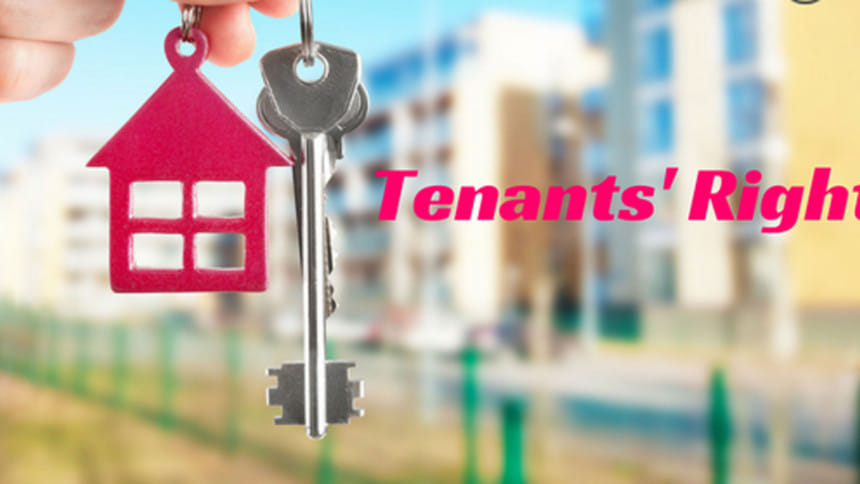Protecting tenants’ rights during Covid-19

The government declared a nationwide lockdown except for emergency services on 25 March 2020 to contain the spread of the Covid-19 pandemic. The lockdown has already been extended until 5 May 2020 and may require further extension if the situation calls for it. As a result of the shutdown of all private and public offices, it is not surprising that middle and low-income citizens are facing financial hardships and may struggle to pay their house rents on time. Many of them are using social media platforms to express their distress regarding such rental arrears.
In such circumstances, can landlords evict tenants for failing to pay rent? The law on the rights and obligations of landlord and tenants is governed by the Premises Rent Control Act, 1991. According to section 18 of the Act, the landlord cannot evict the tenant, as long as the tenant pays rent to the full extent and performs the condition of the tenancy agreement except in the following five situations where (a) the tenant has done any act contrary to the provisions of clauses (m), (c), or (p) of section 108 of the Transfer of property Act, 1882; (b) in the absence of any contract to the contrary, the tenant has, without the consent of the landlord in writing, sublet the premises in whole or in part; (c) the tenant has been guilty of nuisance or an annoyance to occupiers of adjoining or neighbouring premises; (d) the tenant has been using/allowing the premises part thereof to be used for economic purposes; or (e) the premises are bona fide required by the landlord either for building/rebuilding the premises or for his own occupation or for the occupation of any person for whose benefit the premises are held or where the landlord can show any cause that may be deemed satisfactory by the Court.
It appears from above that the Act incorporated limited and strict grounds to prohibit landlords from evicting tenants at their will. However, it gives landlord the right to evict tenants for rental arrears. There are no such provisions in the law for waiving or reducing rent due to financial or economic crisis or such unprecedented times (unless the lease agreement includes a force majeure clause, which is usually not common in leases). Therefore, if any tenant fails to pay rent in accordance with the terms of the lease agreement, landlords may terminate the agreement for breach and issue an eviction notice to the defaulting tenant.
Tenants' fear of getting evicted from home has become a global issue during this pandemic. Many countries have already started addressing the matter to bring about short-term solutions. The housing secretary of England and Wales announced an emergency coronavirus legislation to ban landlords from evicting tenants from their homes for at least three months even if they are struggling to pay their rent. On the other hand, Australia and many states in the USA called to legislate a temporary moratorium on evictions for unpaid rent to keep people in their homes during the crisis.
In absence of such short-term suspension or a solution to residential evictions, landlords and tenants can currently mitigate the situation by taking part in cooperative negotiations. They are highly encouraged to work with tenants to establish fair arrangements by adjusting lease agreements to include deferral, waiver, reduction or other payment arrangements. Besides, it will be equally beneficial for landlords to hold on to their tenants because acquiring new ones in post covid-19 time may seem uncertain. Simultaneously, tenants who are capable of paying their rent must do so to the best of their abilities.
Dhaka Metropolitan Police (DMP) Commissioner Md. Shafiqul Islam informed mass media on 16 April 2020 (also through a post on DMP's verified Facebook page), that some landlords are threating the emergency service providers like the doctors, healthcare providers, bankers, news reporters etc. to evict their houses. In that case, he urged the tenants to inform the police by calling the concerned police station or 999. To explicate further, these eviction threats are illegal as per section 18 of the Act because it stems from the fear of getting infected and not due to rental arrears. Also, home eviction threat to doctors and healthcare providers is a punishable offence under section 25 of the Communicable Diseases (Prevention, Control and Eradication) Act, 2018, for creating disruption or difficulty in performing their duties diligently during the pandemic.
No one should live in fear of losing their home while facing unprecedented challenges from Covid-19. Article 15 of the Constitution of Bangladesh guarantees its citizens the provision of basic necessities of life including shelter. While the government has done a marvellous job in introducing the stimulus packages to save businesses, they may also consider including a bailout scheme for middle and low-income tenants or a temporary moratorium on residential evictions with proper guidance highlighting tenants' rights during Covid-19. Furthermore, some landlords may not be able to waive rents since it is their main source of income. In that case, the National Board of Revenue and city authorities can consider waiving landlords' income tax and holding tax respectively for a year.
The writer is a Barrister and Lecturer at the Department of Law, North South University.

 For all latest news, follow The Daily Star's Google News channel.
For all latest news, follow The Daily Star's Google News channel. 



Comments